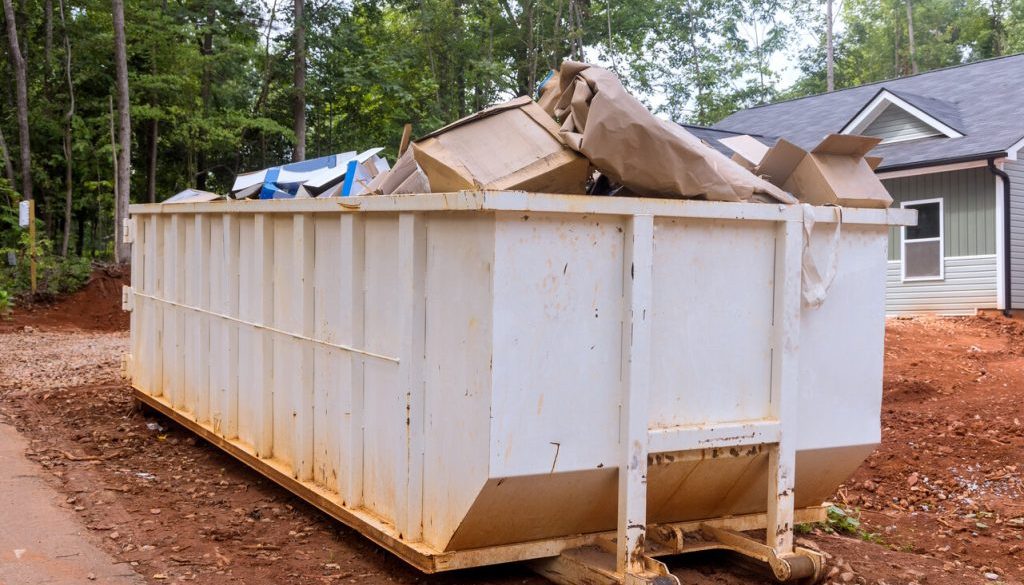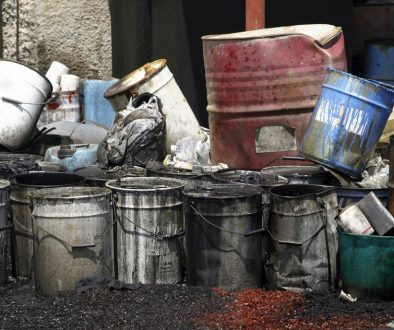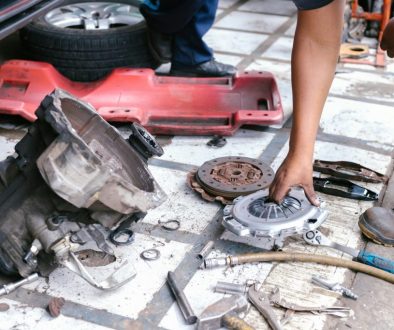Hiring a skip can be a great way to eliminate unwanted items if you’re planning a home renovation or just need to clear out some clutter. However, before you hire a skip, you should know a few things to ensure you get the most out of the experience.
Here are ten of the twenty things you should know before hiring a skip.
1. Know What You Can and Can’t Put in a Skip
Knowing what you can and can’t put in a skip is important to avoid any problems or extra costs. Items such as asbestos, batteries, chemicals, gas bottles, and medical waste are not allowed in skips due to safety reasons. Other items, such as electrical appliances, tyres, and plasterboard, may also have restrictions or additional charges. It is best to check with your skip provider to ensure you follow the correct guidelines and avoid unnecessary expenses.
2. Consider the Size of the Skip
When hiring a skip, it is important to consider the skip size you need. Getting a skip that is too small can lead to multiple trips to dispose of waste, which is time-consuming and costly. On the other hand, hiring a skip that is too big can also be expensive and unnecessary. Therefore, it is important to assess the amount of waste you need to dispose of and choose a skip size that will accommodate it. Some skip-hire companies offer a variety of sizes, so make sure to choose the one that best suits your needs.
3. Think about Where You’ll Put the Skip
When hiring a skip, it is important to consider where it will be placed. Consider the size of the skip, the accessibility of the location, and any regulations in your area regarding placement. You should also ensure the skip is placed on a flat and stable surface to avoid accidents. Additionally, if the skip is placed on a public road, you may need a permit from your local council.
4. Check If You Need a Permit
Before renting a skip for your construction or renovation project, checking if you need a permit is important. Many local councils require a permit for skip placement, which can be obtained by the skip hire company or directly from the local authority. Failing to obtain a permit can result in fines and delays to your project, so it’s essential to ensure that you have all the necessary permissions before ordering your skip. Some areas may also restrict where skips can be placed, so check these rules.
5. Choose a Reputable Skip Hire Company
Hiring a skip can be an effective and convenient solution for waste disposal. However, choosing a reputable skip hire company is crucial to ensure the process is done ethically and efficiently. A reputable company will have a clear pricing structure, provide appropriate permits, and dispose of waste in an environmentally friendly manner. They will also have a range of skip sizes to meet your needs and offer reliable customer service, including prompt delivery and collection.
6. Get Quotes from Multiple Companies
When planning a large-scale project involving a lot of waste, finding the right skip hire company is important. To ensure that you’re getting the best deal, it’s a good idea to get quotes from multiple companies. This will give you an idea of the range of prices and help you make an informed decision. Be sure to compare the services each company offers and the pricing, and don’t forget to read reviews and check references before making your choice.
7. Ask about Delivery and Pickup Times
When hiring a skip for your waste disposal needs, it’s important to ask your skip-hire company about their delivery and pickup times. This will help you plan your project effectively and ensure that the skip is delivered and collected at a time that suits you. Some companies may offer flexible delivery and pickup times, while others may have set schedules. You can avoid delays or unexpected charges by knowing the delivery and pickup times in advance.
8. Check If the Skip Hire Company Recycles
Before hiring a skip, it’s important to check if the skip hire company recycles. Recycling is an essential aspect of waste management, and it’s necessary to ensure that the waste generated is disposed of in an environmentally friendly way. Recycling helps to conserve resources, reduce landfill waste, and minimise pollution. Therefore, if you’re looking to hire a skip, ensure that the skip hire company you choose has a responsible attitude towards recycling.
9. Know How Long You’ll Need the Skip For
Knowing how long you’ll need the skip before you hire one is important. This will help you avoid additional fees or penalties for exceeding the rental period. Consider the size of your project and estimate how much waste you’ll generate. This will give you a good idea of how long you’ll need the skip. If you’re unsure, opting for a more extended rental period is always best to avoid potential issues. Most skip hire companies offer flexible rental options so that you can extend your rental period.
10. Be Aware of Weight Restrictions
Awareness of your skip weight restrictions when disposing of the waste is important. Overloading a skip can be hazardous, as it can cause it to become unstable and potentially tip over. Additionally, it may lead to additional charges or fines from the waste management company. Always check the weight restrictions before choosing a skip size, and make sure not to exceed the limit. If in doubt, opt for a larger skip or arrange for additional collections to avoid any potential issues.
Conclusion
Hiring a skip can be a great way to eliminate unwanted waste, but it’s important to research before hiring one. Considering these 10 (more in part two!) things before you hire a skip, you can make an informed decision and ensure you get the most out of the experience.
Are you looking for the best skip hire company? As a family-run business in Staffordshire, Enviro Skip Hire offer a wide range of skip sizes and aggregates to meet your needs. Check us out today!




